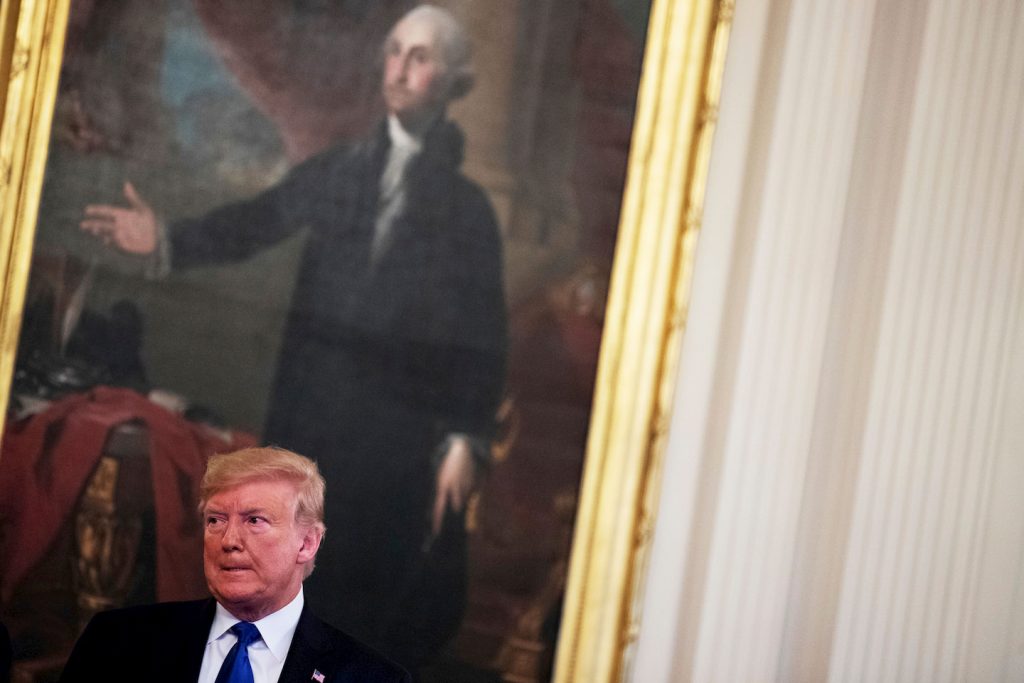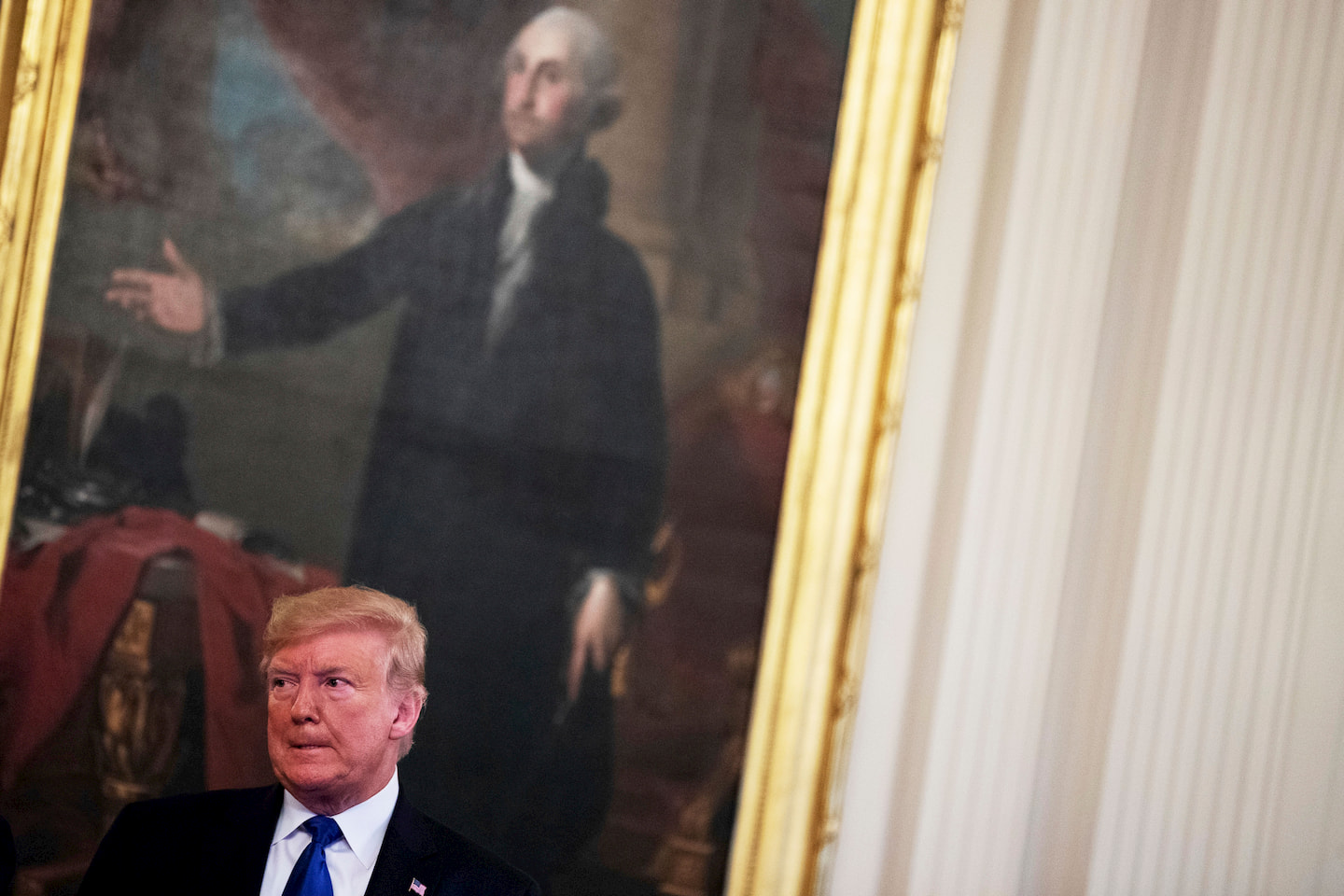CAMBRIDGE – US President Donald Trump’s attacks on unfair Chinese trade and technology policies may have been justified, but his tactics have damaged the alliances and institutions on which the United States (US) depends. Will the short-term gains outweigh the long-term institutional costs?
Trump’s defenders claim that his aggressive unilateral approach broke the inertia in the international trade regime and prevented other countries from diluting US power. But Trump’s transactional diplomacy is very different from the institutional vision of foreign policy that former US Secretary of State George Shultz once described as patient “gardening.”
Ever since World War II, American presidents have tended to support international institutions and sought their extension, whether it be the Nuclear Non-Proliferation Treaty under Lyndon B. Johnson; arms-control agreements under Richard Nixon, Gerald Ford, and Jimmy Carter; the Rio agreement on climate change under George H. W. Bush; the World Trade Organization and the Missile Technology Control Regime under Bill Clinton; or the Paris climate agreement under Barack Obama.

It was not until Trump that a US administration became broadly critical of multilateral institutions as a matter of policy. In 2018, Secretary of State Mike Pompeo proclaimed that since the end of the Cold War, the international order has failed the US and complained that “multilateralism has become viewed as an end unto itself. The more treaties we sign, the safer we supposedly are. The more bureaucrats we have, the better the job gets done.” The Trump administration turned to a narrow transactional approach to institutions.
Institutions are simply valued patterns of social behaviour. They are more than formal organisations, which sometimes ossify and need to be reformed or discarded. Institutions include organisations, but even more important is the whole regime of rules, norms, networks, and expectations that create social roles and moral obligations. A family, for example, is not an organisation, but it is a social institution in which parents’ role entails moral obligations concerning their children’s long-term interests.
Some foreign-policy realists devalue institutions on the grounds that international politics is anarchic and thus zero-sum: my gain is your loss, and vice versa. But in the 1980s, University of Michigan political scientist Robert Axelrod used computer tournaments to show that games where there is a rational incentive to cheat in the short run can be transformed when there is an expectation of a continuing relationship. By enhancing what Axelrod called “the shadow of the future,” international institutions can encourage reciprocity and cooperation, with consequences that go beyond any single transaction. This is what Trump’s transactional myopia misses.
Of course, institutions sometimes lose their value and become illegitimate: witness slavery or segregation, which were once widely accepted. In international relations, the Trump administration worried that the post-1945 institutions had “Gulliverized” the US, and they had a valid point. The Lilliputians use multilateral institutional threads to limit the bargaining power that the American Gulliver would otherwise bring to bear in any bilateral face-off.
The US can use its exceptional strength and resources to break those institutional gossamer threads and maximise its bargaining power in the short term. But it can also see such institutions as means to rope others into support for global public goods and institutions that are in US and others’ long-term interests. The US complains about free riders, but it gets to steer the bus.
The terms “liberal international order” or “Pax Americana” that were used to describe the period after WWII no longer accurately describe the US role in today’s world. Nonetheless, unless the largest countries take the lead in creating global public goods, they will not be provided, and Americans, among others, will suffer. What is clear is that withdrawal from international problems will not be possible, and isolation is not an option.
Nationalism versus globalisation is a false choice. The important policy choices for future US presidents will be about where and how to be involved. American leadership is not the same as hegemony, domination, or military intervention. Even during the seven decades of American pre-eminence after 1945, there have always been degrees of global leadership and influence, and US foreign policy functioned most effectively when presidents understood the importance of networks of multilayered partnerships with others. The hegemony (in the sense of control) and global unipolarity that underpinned US foreign policy after the end of the Cold War were always illusions.
Foreign partners help the US when they want to, and their willingness is affected not just by America’s hard military and economic power, but also by its soft power of attraction based on an open culture, liberal democratic values, and policies that are formulated in ways that are perceived as legitimate. Jeffersonian respect for the opinions of humankind and Wilsonian use of institutions that encourage reciprocity and enhance the long shadow of the future have been crucial to the success of American foreign policy. As Henry Kissinger reminds us, world order depends on the ability of a leading state to combine power and legitimacy. Institutions enhance legitimacy.
Trump’s successor, whenever he or she arrives, will face the challenge of reteaching the American public about a foreign policy whereby the US provides global public goods in collaboration with others, and uses its soft power to attract their cooperation. The success of American primacy after 1945 depended on exercising power with as well as over others. This will be accentuated by the new transnational problems of the twenty-first century such as pandemics, climate change, terrorism, and cybercrime. The future success of US foreign policy may be determined more by how quickly Americans can relearn these institutional lessons than by the rise and decline of other powers.
Joseph S. Nye, Jr., a professor at Harvard, is the author of Do Morals Matter? Presidents and Foreign Policy from FDR to Trump.
Viewpoints is committed to expanding its range of opinions and commentary. Share your views about this or any of our articles. Email feedback to viewpoints@gleanerjm.com.
© Project Syndicate 1995–2020







